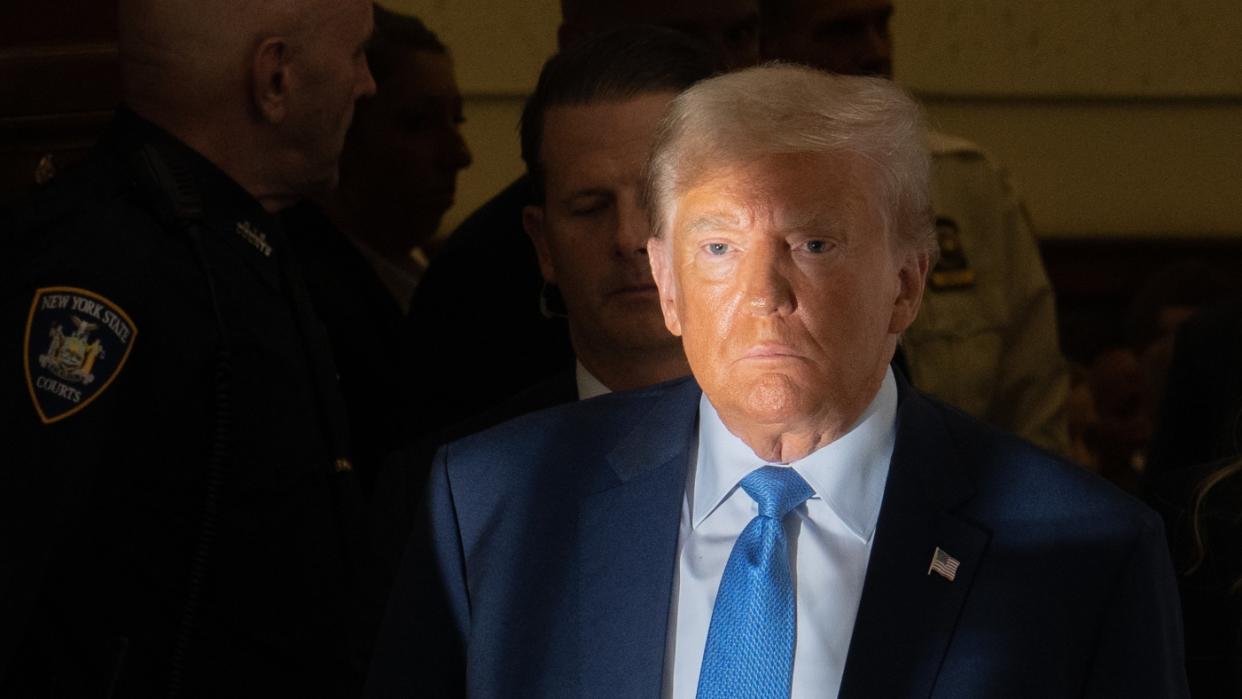Donald Trump under oath: did he score any legal points?

- Oops!Something went wrong.Please try again later.
Donald Trump's testimony in his New York civil fraud trial yesterday was clearly an "an unusual campaign stop in his quest to return to the White House".
For the former US president, who is accused of inflating the value of his properties by more than $2 billion to secure favourable loans, it was a chance to "defend the reputation for unassailable business success that lies at the core of his identity and is essential to his political career", said Joshua Chaffin in the Financial Times.
It is this latter reason that might explain why he was testifying at all, after legal experts warned that doing so "might prove perilous" for his upcoming criminal trials, which – unlike this one – involve "possible prison time".
Trump has already been found to have significantly inflated the value of his properties, with the court proceedings intended to determine the penalties he will face. This could include a $250 million fine, a ban on doing business in New York, and the loss of properties such as Trump Tower.
Return of the 'political street brawler'
Trump's day in court was "never going to go any other way", said Kayla Epstein for the BBC. Taking the stand, "he approached his testimony just as he had his real estate business and political career: ignoring the rules and technicalities, and blustering and bragging his way through it".
He faced the court as "a former president, current frontrunner for the Republican nomination, and a defendant in four separate criminal trials", which will "play out one by one next year in tandem with the US presidential election", continued Epstein. And with "threats against him mounting" it seemed Trump had reverted to the "political street brawler that saw him seize the 2016 Republican nomination from establishment lawmakers".
When he took the stand just after 10am, the former president spoke not with "anger so much as a barrage of words, circular speeches and digressive statements", many of which visibly "irked" Judge Arthur Engoron, who issued several stern warnings to Trump's lawyer, including telling him: "This is not a political rally."
Trump "frequently sparred" with Engoron throughout his testimony, and delivered a series of broadsides against both the court and the prosecution, said The Washington Post. "He called me a fraud, and he didn’t know anything about me," Trump complained about Engoron at one point, and later dubbed the trial "very unfair" and "crazy".
'Significant and damaging' admissions
Amid the bluster and accusations, Trump made a "significant and damaging admission" to the court, said John Cassidy in The New Yorker.
The charges allege the use of fraudulent financial statements by the Trump Organization for favourable loan terms and insurance contracts. Trump appeared to admit that he had gone over figures with Allen Weisselberg, the company's chief financial officer, and had suggested adjustments to asset valuations.
A financial statement is "pretty much like a painting", Trump told the court at one point. "You can tweak pretty much what you want."
Further financial discrepancies were also highlighted, including the misrepresentation of Mar-a-Lago as a private residence despite a tax easement requiring its use as a social club. But true to form, "Trump always has an answer, however implausible it is", said Cassidy. He claimed that although in a tax document he had expressed intent to operate the property as a members' club, he was not bound by that. "It doesn't say I will," he told the court. "It says 'intend'."
Trump's combative approach "does seem completely counterintuitive", said Kevin McMunigal, a former federal prosecutor and professor of criminal law at Case Western University, speaking to the BBC. But there are two possible explanations for his behaviour: "One is Trump just can't control himself. Or two: Maybe this is something he has thought out."
McMunigal said Trump's antagonistic approach may be part of a deliberate strategy, to "goad the judge into doing something he can argue on appeal shows prejudice on his part", which could then be used "to support a bias case later".
Renato Mariotti, a former federal prosecutor, told the BBC that the use of such a tactic indicated that Trump's legal team believe "they've already lost".

